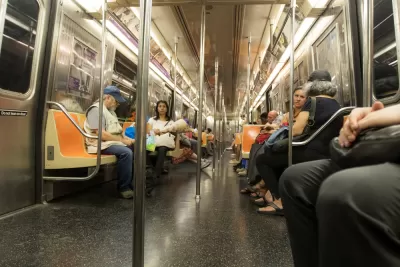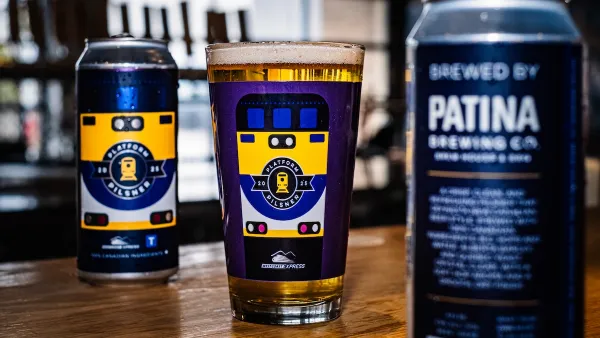Some of the country’s largest public transit systems are scrambling to find new sources of revenue as emergency aid dollars dry up, but some stakeholders don’t see their value.

Some of the nation’s largest public transit systems are still struggling to maintain operations and address massive budget gaps that only widened as the Covid-19 pandemic changed commuting and travel patterns.
Now, Ry Rivard explains in Politico, “historic tensions between urban needs and suburban wants are colliding, as fixes for transit systems depend on approval from elected officials — and their voters — who live outside the central business districts most transportation systems were designed to serve.”
Ultimately, public transit systems are just that: public. Most require some level of subsidies to keep fares affordable and service effective for the people who need it most. As Rivard explains, transit systems spend more money the farther out to suburban areas they go, because they spend more time and resources on fewer riders. “That creates an almost inevitable conflict between urban transit and everyone else. Either the mass transit network serves people outside the city and loses more money and needs more subsidies — or it doesn’t and therefore doesn’t do anything to garner their support.”
Using examples from New York City, Washington, D.C., and Philadelphia, Rivard describes the efforts some agencies are making to create new revenue streams and create more sustainable funding sources. So far, none have established a long-term fix.
FULL STORY: Suburban backlash threatens country’s biggest transit systems

Planetizen Federal Action Tracker
A weekly monitor of how Trump’s orders and actions are impacting planners and planning in America.

Restaurant Patios Were a Pandemic Win — Why Were They so Hard to Keep?
Social distancing requirements and changes in travel patterns prompted cities to pilot new uses for street and sidewalk space. Then it got complicated.

Map: Where Senate Republicans Want to Sell Your Public Lands
For public land advocates, the Senate Republicans’ proposal to sell millions of acres of public land in the West is “the biggest fight of their careers.”

Maui's Vacation Rental Debate Turns Ugly
Verbal attacks, misinformation campaigns and fistfights plague a high-stakes debate to convert thousands of vacation rentals into long-term housing.

San Francisco Suspends Traffic Calming Amidst Record Deaths
Citing “a challenging fiscal landscape,” the city will cease the program on the heels of 42 traffic deaths, including 24 pedestrians.

California Homeless Arrests, Citations Spike After Ruling
An investigation reveals that anti-homeless actions increased up to 500% after Grants Pass v. Johnson — even in cities claiming no policy change.
Urban Design for Planners 1: Software Tools
This six-course series explores essential urban design concepts using open source software and equips planners with the tools they need to participate fully in the urban design process.
Planning for Universal Design
Learn the tools for implementing Universal Design in planning regulations.
Heyer Gruel & Associates PA
JM Goldson LLC
Custer County Colorado
City of Camden Redevelopment Agency
City of Astoria
Transportation Research & Education Center (TREC) at Portland State University
Camden Redevelopment Agency
City of Claremont
Municipality of Princeton (NJ)





























